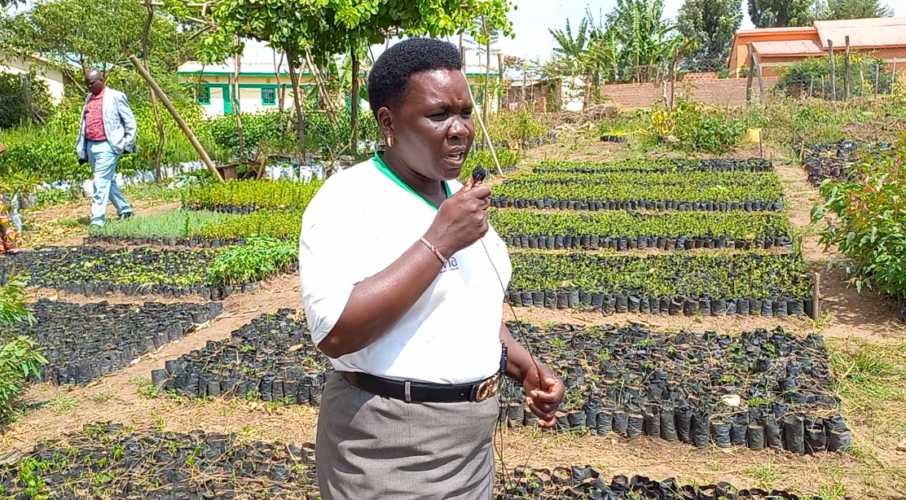Janephrice Talian is the Cheptais Community Forest Association’s chairperson, which serves thousands of residents around Mt. Elgon. The group has 3,200 members spread around Mt. Elgon and organized into 43 registered user groups. The user groups engage in 11 different value chains, including beekeeping, poultry, herbal medicine, eco-tourism, dairy, fodder production, grazing, tree nursery, cultural services, and agroforestry, among other activities. These activities are included in the currently active Participatory Forest Management Plan signed between the Association and the Kenya Forest Service.
Over five hundred kilometres away from Cheptais Town, on the slopes of Mt. Kenya, Zipporah Matumbi, an active community mobilizer and conservationist, is also leading the Kiamiriru Mpuri Environmental Conservation Group in Meru County. Zipporah is also the treasure of the Farm Forestry Smallholder Producers Association of Kenya (FFSPAK), an apex organisation championing farm forestry in Kenya.
The growing appreciation of women’s leadership in conservation and agriculture is encouraging. Thanks to endless calls and efforts by various stakeholders.
Having women lead such farmer-based organizations is worth celebrating as the world marks International Women’s Month under the theme “Gender Equality Today for a Sustainable Tomorrow”. There is a growing acceptance of women’s leadership even within indigenous communities whose leadership is male-dominated, as seen in the Mt. Elgon regions.
Janephrice, the Cheptais CFA’s chairperson, is quick to note women’s progress in the agricultural sector leadership in the Mt. Elgon region.
“I am glad to have been elected to lead the CFA as a woman. This shows our community’s growing trust in women’s leadership, especially on matters touching land and the environment, normally under men and elders in our community. We have shared leadership positions almost equally between women and men, and even some user groups are led completely by women,” Janephrice explains.
The CFA is currently implementing projects funded by FAO to support organizational development and improve productivity and business capacity. This is expected to build the capacity and confidence of women leading farmer groups and help the community appreciate their potential
On the other hand, national organizations have played a critical role in pushing for gender diversity, as noted by Zipporah Matumbi.
“If we did not have strong apex organization like FFSPAK and strong supporting partners like FAO, We Effect, KFS, achieving gender equality would have been hard. These partners have supported the transformative capacity development of many farmer groups at the community level, which has given women the confidence to lead,” Zipporah adds.
Together with all its partners, FFSPAK is designing projects to build women and youth’s entrepreneurial and agri-business capacity through customized business incubation programmes. This is expected to boost its affiliates’ socioeconomic development through partnerships with Technical and Vocational Education and Training (TVETs) centres. The project will prioritize youth and women as crucial beneficiaries.


Comments are closed, but trackbacks and pingbacks are open.